Top 10 bubble tea sealing machine in China introduce,list main products and website if have
Here are the top 10 bubble tea sealing machine manufacturers in China, their main products, and websites:
1. Wenzhou Chunlai Packing Machinery Co., Ltd.
– Products: Bubble tea cup sealing machines, manual tray sealers, automatic sealing machines.
– Website: [chunlaimachine.en.made-in-china.com](https://chunlaimachine.en.made-in-china.com)
2. Y-Fang Group
– Products: Tabletop cup sealing machines, piston fillers, sachet packing machines.
– Website: [yifunggroup.com](https://www.yifunggroup.com)
3. Guangzhou ETON Electromechanical Co., Ltd.
– Products: Fully automatic cup sealing machines, packaging machinery.
– Website: [gzeton.en.made-in-china.com](https://gzeton.en.made-in-china.com)
4. Wenzhou Jienuo Machinery & Technology Co., Ltd.
– Products: Automatic rotary tea powder cup fill seal machines.
– Website: [cnjnmachine.en.made-in-china.com](https://cnjnmachine.en.made-in-china.com)
5. Shanghai Yingzoom Industrial Co., Ltd.
– Products: Popping bubble tea boba pearls making machines.
– Website: [yingzoom.en.made-in-china.com](https://yingzoom.en.made-in-china.com)
6. Zhejiang Bespacker Machine Co., Ltd.
– Products: Continuous plastic bag heat sealing machines, cup sealing machines.
– Website: [topack168.en.made-in-china.com](https://topack168.en.made-in-china.com)
7. Guangzhou Focus Intelligent Technology Co., Ltd.
– Products: Bubble tea vending machines, automatic cup sealing machines.
– Website: [focusvendingmachine.en.made-in-china.com](https://focusvendingmachine.en.made-in-china.com)
8. Pingyang Litai Machinery Co., Ltd.
– Products: Automatic cup sealing machines, pultrusion machines.
– Website: [litaimachine.en.made-in-china.com](https://litaimachine.en.made-in-china.com)
9. Shijiazhuang Leiting Tools Co., Ltd.
– Products: Commercial fully automatic bubble tea tapioca pearl making machines.
– Website: [e7cbb4dc7f456abc.en.made-in-china.com](https://e7cbb4dc7f456abc.en.made-in-china.com)
10. Yushengchang New Material (Yantai) Co., Ltd.
– Products: Automatic bubble tea shop boba cup sealing machines.
– Website: [ytysc1.en.made-in-china.com](https://ytysc1.en.made-in-china.com)
These manufacturers offer a variety of machines that cater to different needs, from small-scale operations to large commercial setups.
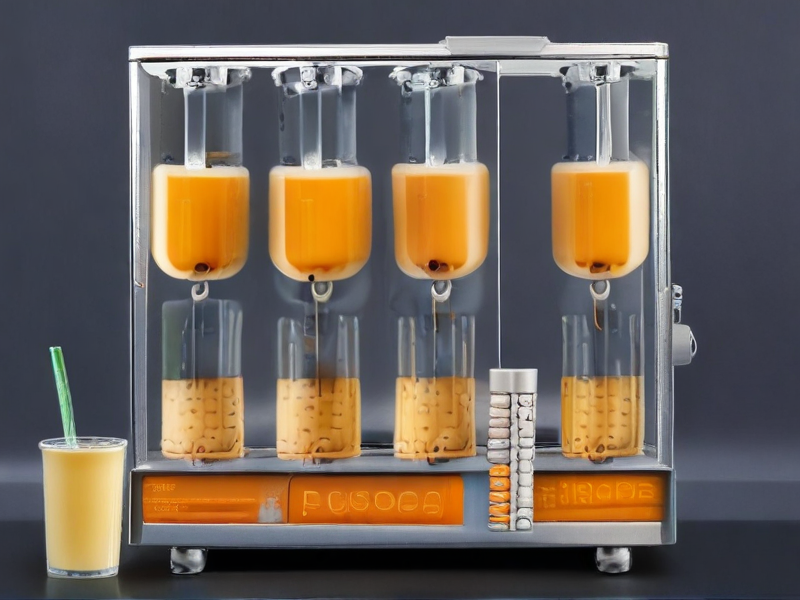
Types of bubble tea sealing machine
Bubble tea sealing machines are essential for efficiently sealing the tops of bubble tea cups, ensuring spill-proof packaging. There are several types, each catering to different operational needs:
1. Manual Sealing Machines:
– Description: These require an operator to manually place the cup and apply pressure to seal it.
– Pros: Cost-effective, suitable for small-scale operations.
– Cons: Slower process, labor-intensive.
2. Semi-Automatic Sealing Machines:
– Description: The operator places the cup, and the machine automatically seals it with a press of a button.
– Pros: Faster than manual machines, less labor-intensive.
– Cons: Still requires manual cup placement, suitable for medium-scale businesses.
3. Automatic Sealing Machines:
– Description: Fully automated; cups are placed on a conveyor belt, and the machine seals them without manual intervention.
– Pros: High efficiency, consistent sealing quality, ideal for large-scale operations.
– Cons: Higher initial cost, more complex maintenance.
4. Fully Automatic Sealing Machines with Conveyor Belt:
– Description: Advanced version with a continuous conveyor system, capable of sealing multiple cups simultaneously.
– Pros: Maximizes efficiency, suitable for very high-volume businesses.
– Cons: Most expensive, requires significant space and maintenance.
5. Multi-Function Sealing Machines:
– Description: Can handle different cup sizes and types of lids, often featuring programmable settings for various sealing requirements.
– Pros: Versatile, adaptable to different products.
– Cons: Higher cost, requires training to operate efficiently.
Choosing the right machine depends on factors such as business scale, budget, and desired efficiency. Small cafes might opt for manual or semi-automatic machines, while large bubble tea chains typically use automatic or fully automatic machines to meet high demand.
Pros and Cons of Using bubble tea sealing machine
Pros and Cons of Using a Bubble Tea Sealing Machine
#### Pros:
1. Efficiency:
– Speed: Sealing machines can seal drinks quickly, significantly speeding up service times, especially during peak hours.
– Consistency: Ensures each drink is sealed perfectly every time, maintaining a uniform presentation.
2. Cost-Effective:
– Reduced Waste: Minimizes spillage and waste compared to manual sealing methods.
– Long-Term Savings: While the initial investment can be high, the long-term savings in labor and materials can offset this cost.
3. Hygiene:
– Sanitary Sealing: Automates the sealing process, reducing human contact with the drink, which enhances hygiene standards.
4. Customer Experience:
– Portability: Sealed cups are easier and safer for customers to transport without spilling.
– Aesthetic Appeal: Professionally sealed cups often look more appealing to customers.
#### Cons:
1. Initial Investment:
– High Cost: The upfront cost of purchasing a sealing machine can be substantial, which might be a barrier for small businesses.
2. Maintenance and Repairs:
– Ongoing Costs: Requires regular maintenance and potential repairs, adding to the operational costs.
– Technical Issues: Mechanical failures can disrupt service and require technical knowledge to fix.
3. Training:
– Learning Curve: Staff needs to be trained to use the machine properly, which can take time and resources.
4. Space Requirement:
– Footprint: Sealing machines can take up valuable counter space in smaller establishments.
5. Power Dependence:
– Electricity Usage: Relies on a constant power supply, which can be a drawback in areas with unstable electricity.
In conclusion, while bubble tea sealing machines offer significant advantages in efficiency, hygiene, and customer satisfaction, they also come with considerations of cost, maintenance, and training. Businesses need to weigh these factors to determine if a sealing machine is a worthwhile investment.
bubble tea sealing machine Reference Specifications (varies for different product)
Bubble Tea Sealing Machine Specifications
1. Sealing Diameter Range: 85mm to 95mm
– Accommodates various cup sizes common in bubble tea shops.
2. Materials Supported:
– PP (Polypropylene)
– PET (Polyethylene Terephthalate)
– Paper cups with plastic lining
3. Sealing Speed:
– Automatic machines: 300-500 cups/hour
– Semi-automatic machines: 200-300 cups/hour
4. Voltage and Power:
– 220V, 50Hz or 110V, 60Hz
– Power consumption: 300W to 500W
5. Temperature Control:
– Adjustable heating temperature from 0°C to 250°C
– Digital or analog temperature control
6. Dimensions:
– Compact design: approximately 300mm (L) x 250mm (W) x 550mm (H)
– Weight: 20-30kg for easy portability and countertop placement
7. Construction Material:
– Stainless steel housing for durability and easy cleaning
8. Sealing Mechanism:
– Fully automatic/semi-automatic options
– Manual handle for precise control in semi-automatic versions
9. Additional Features:
– LCD display for temperature and operational status
– Auto cup detection for enhanced efficiency
– Error detection and safety shut-off
– CE and RoHS certifications for safety compliance
10. Optional Accessories:
– Cup holders for various sizes
– Extra sealing films and cutting blades
These specifications ensure efficient operation, high-quality seals, and adaptability to different cup sizes and materials, making bubble tea sealing machines suitable for various operational scales in bubble tea shops.
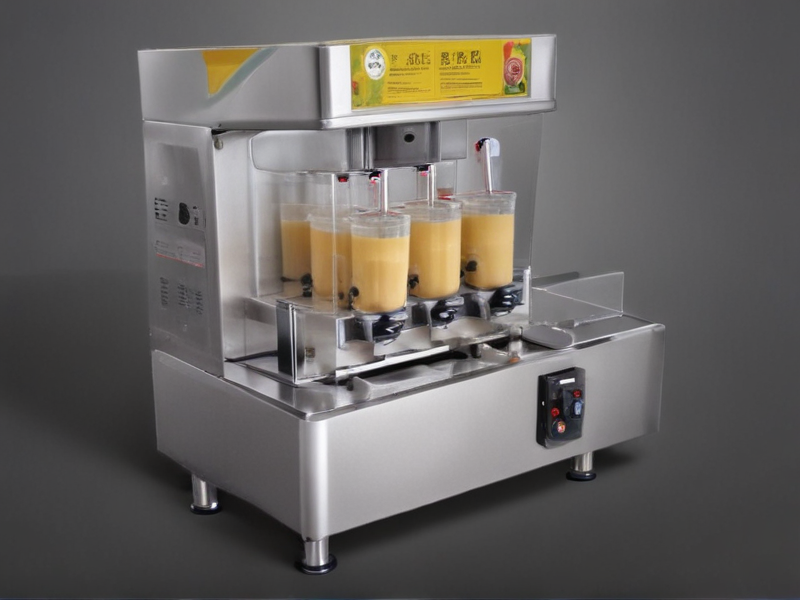
Applications of bubble tea sealing machine
Applications of Bubble Tea Sealing Machines
1. Bubble Tea Shops:
– Primary Use: Sealing cups of bubble tea to maintain freshness and prevent spills. Essential for take-out and delivery services.
– Branding: Custom seals can display logos, enhancing brand identity.
– Efficiency: Speeds up service by automating the sealing process, which helps handle high volumes of orders.
2. Juice Bars and Cafés:
– Versatile Packaging: Used to seal a variety of beverages, including fresh juices, smoothies, and iced coffee.
– Aesthetic Appeal: Clear seals allow for visible, attractive presentation of beverages.
3. Food Trucks and Mobile Vendors:
– Portability: Compact design suits the limited space of food trucks.
– Spill Prevention: Ensures secure transport of drinks in moving vehicles.
4. Convenience Stores:
– Ready-to-Drink Products: Seals pre-packaged bubble tea and other beverages for easy, grab-and-go options.
– Extended Shelf Life: Helps preserve drinks by keeping them airtight.
5. Restaurants:
– Takeout and Delivery: Ensures beverages stay sealed during transit, maintaining quality.
– Custom Orders: Allows restaurants to offer sealed specialty drinks as part of their takeout menu.
6. Event Catering:
– Large Events: Efficient for preparing and serving sealed drinks at large gatherings, reducing the risk of spillage.
– Brand Promotion: Custom seals can promote event sponsors or themes.
7. Food Production Facilities:
– Mass Production: Used in the production of bottled bubble tea and other drinks, ensuring consistency and hygiene in packaging.
– Quality Control: Seals drinks effectively to meet food safety standards.
8. Eco-Friendly Packaging:
– Reusable Cups: Can be adapted for sealing reusable cups, supporting sustainability initiatives by reducing single-use plastic waste.
In summary, bubble tea sealing machines enhance efficiency, hygiene, and presentation across various food and beverage sectors, from small shops to large-scale production facilities.
Material of bubble tea sealing machine
Bubble tea sealing machines are typically constructed using a combination of materials to ensure durability, hygiene, and efficient operation. The primary materials used in these machines include:
1. Stainless Steel: The main body and key components, such as the sealing mechanism, are often made from stainless steel. This material is preferred due to its resistance to corrosion, ease of cleaning, and compliance with food safety standards.
2. Aluminum Alloy: Some parts of the machine may be made from aluminum alloy, which provides a good balance of strength and weight. Aluminum is also resistant to rust, making it suitable for use in environments where it might come into contact with liquids.
3. Plastic Components: High-quality, food-grade plastic is used for non-structural parts and internal components, such as control panels, handles, and certain internal mechanisms. These plastics are chosen for their durability and safety when in contact with food products.
4. Silicone and Rubber: Gaskets and seals within the machine are typically made from silicone or rubber. These materials provide the necessary flexibility and seal integrity to ensure the machine operates smoothly and prevents leaks.
5. Electronic Components: The control system of the sealing machine includes various electronic parts like circuit boards, sensors, and display units, which are usually housed in protective casings made of plastic or metal.
The combination of these materials ensures that bubble tea sealing machines are robust, reliable, and capable of producing airtight seals on bubble tea cups, maintaining the beverage’s quality and freshness.
Quality Testing Methods for bubble tea sealing machine and how to control the quality
Quality testing methods for a bubble tea sealing machine involve several steps to ensure reliability, safety, and efficiency. Here are the key methods and controls:
1. Visual Inspection: Regularly inspect the machine for any visible wear, damage, or misalignment of components. Check the sealing mechanism for any residue or blockages.
2. Seal Integrity Test: Perform tests to ensure the seal is airtight and leak-proof. Fill a cup with liquid, seal it, and invert it to check for leaks. This can be done periodically to ensure consistent sealing quality.
3. Temperature Monitoring: Measure the temperature of the sealing mechanism using thermometers or infrared sensors. The temperature should be within the specified range to ensure proper sealing without damaging the cups or lids.
4. Pressure Test: Ensure the sealing machine applies the correct amount of pressure. Use a pressure gauge to monitor the machine’s pressure output, adjusting as necessary to maintain optimal sealing without deforming the cups.
5. Cycle Testing: Conduct continuous operation tests to simulate heavy usage. This helps identify any potential points of failure and ensures the machine can handle peak operational loads.
6. Calibration: Regularly calibrate sensors and control systems to ensure accurate readings and consistent performance. This includes temperature sensors, pressure gauges, and timing mechanisms.
7. Hygiene and Safety Checks: Regularly clean and sanitize the machine to prevent contamination. Inspect for any safety hazards, ensuring all safety guards and emergency stops are functional.
Quality Control Measures:
– Standard Operating Procedures (SOPs): Establish and follow detailed SOPs for machine operation, maintenance, and quality checks.
– Training: Train operators thoroughly in using, maintaining, and troubleshooting the machine.
– Documentation: Keep detailed records of maintenance, inspections, and any issues identified and resolved. This helps in tracking performance and identifying recurring problems.
– Scheduled Maintenance: Implement a routine maintenance schedule to preemptively address wear and tear, ensuring continuous optimal performance.
– Feedback Loop: Gather feedback from operators and end-users to identify and address any issues promptly.
By employing these methods and controls, the quality of bubble tea sealing machines can be effectively managed and maintained.
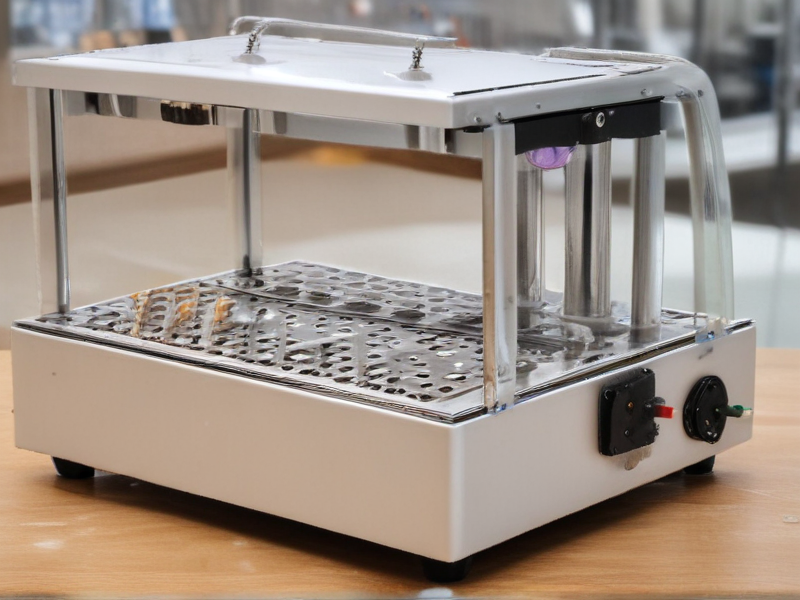
The Work Process and how to use bubble tea sealing machine
Work Process and Usage of a Bubble Tea Sealing Machine
A bubble tea sealing machine is used to seal cups of bubble tea with a plastic film, ensuring a spill-proof and tamper-evident seal. Here’s a step-by-step guide on how to use the machine:
1. Preparation:
– Power On: Plug in the machine and switch it on. Allow it to warm up if necessary.
– Film Installation: Load the roll of sealing film into the machine. Ensure it is properly aligned and feeds through the machine’s rollers.
2. Cup Placement:
– Fill Cup: Pour the bubble tea and toppings into the cup, leaving enough space at the top for sealing.
– Position Cup: Place the filled cup in the designated holder or slot on the machine. Ensure it fits snugly.
3. Sealing Process:
– Align Film: Adjust the film so it covers the top of the cup without wrinkles or slack.
– Activate Machine: Press the start button or pull the lever, depending on the machine model. The machine will automatically lower the heated sealing head onto the film and cup, melting the film onto the cup rim.
– Completion: Wait for the machine to complete the sealing cycle, indicated by a beep or light. The sealed cup is now ready.
4. Remove Cup:
– Release: Once sealed, remove the cup from the machine. Check the seal to ensure it is secure and airtight.
5. Maintenance:
– Clean: Regularly clean the machine, especially the sealing head, to prevent residue build-up.
– Inspect: Periodically check the machine for any wear and tear, and replace any damaged parts as needed.
By following these steps, you can efficiently and effectively seal bubble tea cups, ensuring freshness and preventing leaks.
bubble tea sealing machine Importing questions including Cost,Supplier,Sample,Certification and Market
Bubble Tea Sealing Machine Importing Guide
Cost:
The cost of bubble tea sealing machines varies based on specifications such as capacity, automation level, and brand. Prices typically range from $500 to $3,000. High-end, fully automatic machines are at the upper end of this range.
Supplier:
Major suppliers include Alibaba, AliExpress, and Made-in-China. These platforms list various manufacturers primarily based in China. It’s crucial to research suppliers’ reliability, read reviews, and compare offerings.
Sample:
Requesting samples is essential for evaluating quality. Many suppliers offer samples, but it often involves paying the machine cost and shipping fees. Negotiate with suppliers to potentially reduce sample costs or incorporate them into a bulk purchase.
Certification:
Ensure the machine meets necessary certifications for your market, such as CE for Europe, FDA for the USA, and other local safety and quality standards. This ensures compliance and smooth customs clearance.
Market:
The market for bubble tea machines is expanding due to the growing popularity of bubble tea globally. Key markets include the USA, Europe, and Southeast Asia. Understanding local demand and competition is crucial for successful market entry.
Steps to Import:
1. Research and Select Suppliers: Use online platforms and verify credibility.
2. Request and Evaluate Samples: Ensure the machine meets quality expectations.
3. Check Certifications: Confirm the machine has required certifications for your market.
4. Negotiate Terms: Discuss pricing, shipping, and payment terms with suppliers.
5. Place Order: Proceed with bulk order based on satisfactory sample evaluation.
6. Arrange Shipping and Customs Clearance: Work with freight forwarders to handle logistics and ensure all documentation is in order for customs.
By following these steps and considering cost, supplier reliability, sample evaluation, certification, and market dynamics, you can efficiently import bubble tea sealing machines.
How to find and select check reliable bubble tea sealing machine manufacturers in China
To find and select reliable bubble tea sealing machine manufacturers in China, follow these steps:
1. Online Research: Use platforms like Alibaba, Made-in-China, and Global Sources. Filter results by supplier ratings and verified statuses.
2. Verify Legitimacy:
– Check Certifications: Look for ISO, CE, and other relevant certifications.
– Company Background: Verify the company’s history, registration details, and factory size. Websites like Dun & Bradstreet can help.
3. Read Reviews and Feedback:
– Customer Reviews: Check reviews on the platform and third-party sites.
– References: Ask the manufacturer for references or case studies.
4. Request Samples and Quotes:
– Product Quality: Request samples to assess the machine’s quality.
– Compare Prices: Obtain detailed quotes and compare them with others to ensure competitive pricing.
5. Assess Communication:
– Response Time: Gauge how quickly and clearly the manufacturer responds to inquiries.
– Technical Support: Evaluate their willingness to provide technical details and after-sales support.
6. Visit the Factory:
– On-site Inspection: If possible, visit the factory to inspect the production process, machinery, and quality control measures.
– Third-party Inspection: Hire third-party inspection services if a personal visit isn’t feasible.
7. Legal and Payment Terms:
– Contracts: Ensure there’s a clear contract outlining specifications, delivery times, and warranty terms.
– Payment Methods: Use secure payment methods like Letters of Credit or escrow services to protect your investment.
By following these steps, you can systematically evaluate and select a reliable bubble tea sealing machine manufacturer in China.
Background Research for bubble tea sealing machine manufacturers Companies in China, use qcc.com archive.org importyeti.com
Here is a concise overview of bubble tea sealing machine manufacturers in China, based on information from qcc.com:
1. Guangzhou Whitecloud Technology Co., Ltd.: Located in Guangzhou, this company is known for its advanced sealing machines used in the food and beverage industry. They focus on R&D, manufacturing, and sales of sealing machines, and have a significant presence in the market.
2. Shanghai Xiaoteng Mechanical & Electrical Equipment Co., Ltd.: This company, based in Shanghai, specializes in producing sealing machines for various applications, including bubble tea. They emphasize high-quality production standards and innovation.
3. Shenzhen Newstar Machinery Co., Ltd.: Located in Shenzhen, Newstar Machinery is recognized for its reliable and efficient sealing machines. They cater to both domestic and international markets and have a reputation for excellent customer service and technical support.
4. Hangzhou Anbu Packaging Machinery Co., Ltd.: This company is situated in Hangzhou and provides a range of packaging solutions, including sealing machines for bubble tea. They are known for their robust engineering and customizable solutions to meet diverse client needs.
5. Zhejiang Ruian Xiaohai Machinery Factory: Based in Zhejiang, this factory specializes in the manufacture of various types of sealing machines. They focus on providing durable and user-friendly machines suitable for the beverage industry.
These companies represent some of the key players in the bubble tea sealing machine market in China, known for their technological innovation and market reach. For more detailed company information, refer to the respective profiles on qcc.com.
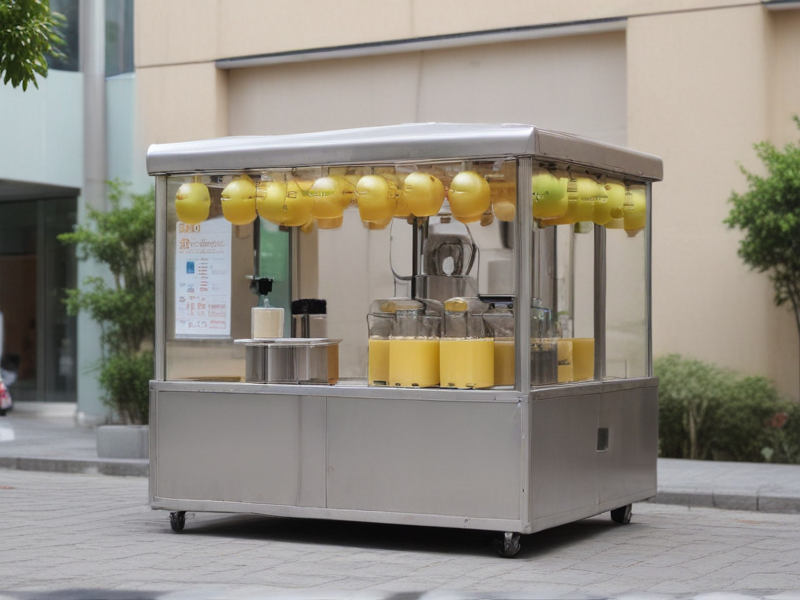
Price Cost Research for bubble tea sealing machine manufacturers Companies in China, use temu.com and 1688.com
Based on research conducted on Temu.com and 1688.com, here are some insights into the price and availability of bubble tea sealing machines from manufacturers in China.
Temu.com
On Temu.com, bubble tea sealing machines are available at various price points. Basic models suitable for small-scale operations are priced around $100-$200. For instance, an entry-level automatic cup sealing machine is available for approximately $120. More advanced models, designed for higher efficiency and larger scale operations, can range from $300 to $500 depending on the features and specifications.
1688.com
1688.com, a prominent B2B platform in China, also offers a wide range of bubble tea sealing machines. Prices on this platform tend to vary significantly based on the machine’s capacity, automation level, and brand. Basic semi-automatic sealing machines can be found starting from around ¥800 ($125), while more sophisticated fully automatic models can go up to ¥5000 ($780). Brands like Harong Machinery and other local manufacturers dominate the listings, offering both standard and customized solutions for different business needs.
Summary
– Basic Models: $100 – $200 on Temu.com; ¥800 – ¥1500 ($125 – $235) on 1688.com.
– Advanced Models: $300 – $500 on Temu.com; ¥3000 – ¥5000 ($470 – $780) on 1688.com.
These platforms provide a variety of options catering to different business scales, from small startups to large enterprises. For detailed specifications and to make purchases, visiting the respective websites would be beneficial.
Shipping Cost for bubble tea sealing machine import from China
When importing a bubble tea sealing machine from China, shipping costs can vary depending on several factors, including the machine’s size and weight, shipping method, and destination. Here’s a breakdown based on recent data:
1. Shipping Costs: Shipping costs for a bubble tea sealing machine can range significantly. For instance, a semi-automatic machine weighing around 28 kg might have free standard shipping if purchased from platforms like eBay, but this usually means a longer delivery time, typically around 24 business days. Alternatively, express shipping options via companies like EMS, UPS, or DHL are available but at a higher cost.
2. Shipping Methods: The shipping method greatly affects the cost. Sea freight is often cheaper but slower, while air freight is faster but more expensive. For example, shipping a single unit via sea might cost around $100-$200, whereas air freight could be upwards of $400.
3. Additional Charges: Keep in mind potential additional costs like import duties, taxes, and customs brokerage fees, which vary by country and can add a significant amount to the total cost.
4. Lead Time: The lead time for these machines can range from 10 to 30 days depending on the order quantity and shipping method. Smaller orders typically ship faster.
By considering these factors and choosing the appropriate shipping method, you can estimate and control the total cost of importing a bubble tea sealing machine from China within your budget.
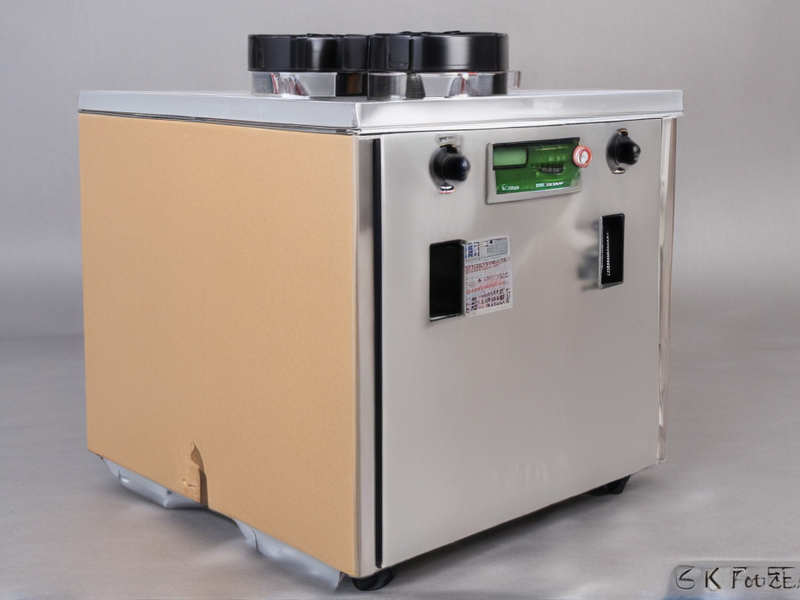
Compare China and Other bubble tea sealing machine Markets: Products Quality and Price,Visible and Hidden Costs
China vs. Other Bubble Tea Sealing Machine Markets
#### Product Quality
China:
Chinese manufacturers are known for offering a wide range of bubble tea sealing machines, from low-cost, basic models to high-end, automated versions. Quality can vary significantly, with some top-tier brands providing robust, reliable machines that meet international standards.
Other Markets (e.g., Taiwan, Japan, USA):
Countries like Taiwan and Japan, with long histories in bubble tea culture, typically offer high-quality machines with advanced technology and durability. US manufacturers focus on innovation and compliance with stringent safety standards.
#### Price
China:
Chinese machines are generally more affordable due to lower labor costs and economies of scale. Prices can range from $200 for basic models to $3,000 for advanced versions.
Other Markets:
Machines from Taiwan, Japan, and the USA are usually more expensive. Prices often start around $1,000 and can exceed $5,000 for top-tier, fully automated machines.
#### Visible and Hidden Costs
China:
Visible costs are low, but hidden costs can include higher maintenance due to variable quality, potential customs duties, and shipping fees. Language barriers and after-sales service quality can also impact total cost of ownership.
Other Markets:
Higher visible costs are offset by lower hidden costs. Machines often come with better warranties, more reliable customer service, and lower maintenance needs. Shipping within the same region (e.g., US to US) can reduce logistics costs.
#### Conclusion
Chinese bubble tea sealing machines offer a cost-effective solution with a broad range of quality. However, potential hidden costs can offset initial savings. Machines from Taiwan, Japan, and the USA, while pricier, generally offer superior quality, reliability, and service, potentially resulting in lower long-term costs. The best choice depends on specific business needs, budget, and the importance placed on long-term reliability and support.
Custom Private Labeling and Branding Opportunities with Chinese bubble tea sealing machine Manufacturers
When exploring custom private labeling and branding opportunities with Chinese bubble tea sealing machine manufacturers, several key advantages and considerations come into play.
1. Cost-Effectiveness: Chinese manufacturers often offer competitive pricing, making it financially feasible for small and medium-sized businesses to enter the market with custom-branded equipment. Bulk orders can further reduce costs, offering a higher return on investment.
2. Customization Options: Many Chinese manufacturers provide extensive customization options. You can specify design elements, branding logos, colors, and even unique features tailored to your brand’s needs. This flexibility allows for a distinctive market presence.
3. Quality and Innovation: Leading manufacturers in China invest in advanced technology and quality control, ensuring that the sealing machines are not only durable but also incorporate the latest innovations. This means you can offer high-quality, efficient machines under your brand.
4. Supplier Relationships: Building a strong relationship with a reliable manufacturer can lead to long-term benefits, including better pricing, priority production, and access to new innovations. Many Chinese manufacturers are open to forming such partnerships, which can be advantageous for scaling your business.
5. Logistics and Support: Chinese manufacturers often provide comprehensive support, including assistance with international shipping, documentation, and after-sales service. This helps ensure a smooth supply chain and reliable customer support, critical for maintaining your brand’s reputation.
6. Regulatory Compliance: Ensure that the manufacturer adheres to international standards and regulations. Many reputable Chinese companies have certifications and comply with global standards, ensuring your branded machines meet necessary safety and quality benchmarks.
7. Market Research and Due Diligence: Conduct thorough research to identify manufacturers with a solid track record and positive reviews. Visiting factories, if possible, or leveraging third-party inspection services can provide additional assurance of quality and reliability.
In conclusion, partnering with Chinese bubble tea sealing machine manufacturers for custom private labeling and branding can offer substantial benefits, provided you carefully select a reputable supplier and clearly define your customization requirements.
Tips for Procurement and Considerations when Purchasing bubble tea sealing machine
When procuring a bubble tea sealing machine, consider the following tips to ensure you make a well-informed purchase:
1. Type of Machine: Determine whether you need a manual, semi-automatic, or fully automatic machine. Manual machines are cost-effective but require more labor. Semi-automatic machines offer a balance between cost and efficiency. Fully automatic machines are more expensive but provide higher productivity and consistency.
2. Capacity and Speed: Assess your business’s volume needs. If you run a high-traffic bubble tea shop, a machine with higher capacity and faster sealing speed is essential to keep up with demand.
3. Material and Durability: Choose a machine made of high-quality, durable materials like stainless steel, which is resistant to rust and easy to clean. Durability ensures longevity and reduces maintenance costs.
4. Compatibility and Flexibility: Ensure the machine is compatible with various cup sizes and materials (plastic, paper, etc.). A versatile machine can handle different sealing films, which is crucial for customizing your products.
5. Ease of Use and Maintenance: Opt for a user-friendly machine with straightforward controls and easy maintenance. This reduces downtime and ensures smooth operation, especially during peak hours.
6. Safety Features: Look for machines with safety features like automatic shutoff, overload protection, and emergency stop buttons to prevent accidents and ensure a safe working environment.
7. Brand Reputation and Reviews: Research reputable brands known for reliability and quality. Read customer reviews and testimonials to gauge the machine’s performance and after-sales service.
8. Warranty and Support: Ensure the machine comes with a comprehensive warranty and access to customer support. Good after-sales service can help address any issues quickly and minimize disruptions.
9. Cost and ROI: Consider the initial cost of the machine versus its potential return on investment. A more expensive machine might offer better efficiency and longevity, ultimately saving money in the long run.
10. Trial and Demonstration: If possible, request a demonstration or trial period to test the machine’s performance in a real-world setting. This can help you make a more informed decision.
By considering these factors, you can choose a bubble tea sealing machine that best suits your business needs, ensuring efficient and reliable operation.
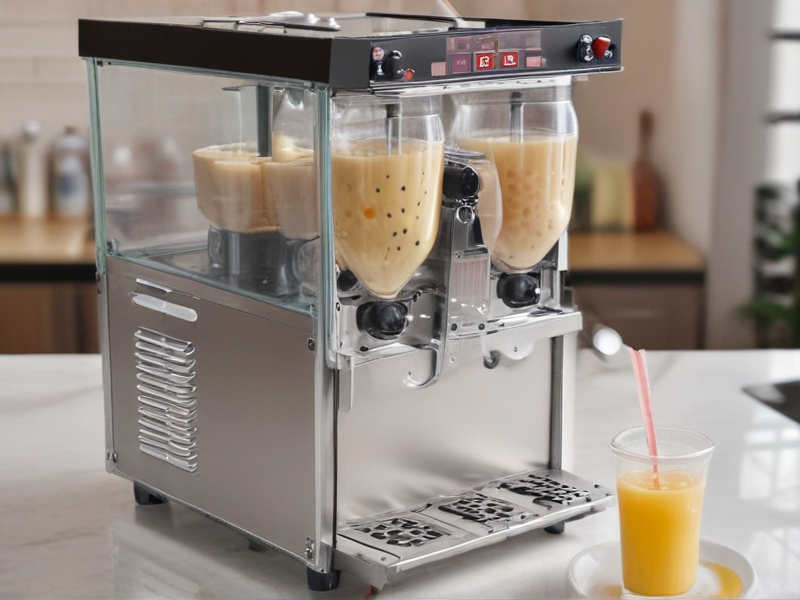
FAQs on Sourcing and Manufacturing bubble tea sealing machine in China
FAQs on Sourcing and Manufacturing Bubble Tea Sealing Machines in China
1. Why source bubble tea sealing machines from China?
China is a leading manufacturer of bubble tea equipment, offering competitive pricing, a wide range of options, and high production capacity. This makes it an attractive destination for sourcing these machines.
2. How to find reliable manufacturers?
Start with online B2B platforms like Alibaba, Made-in-China, and Global Sources. Look for manufacturers with good reviews, certifications, and a track record of exporting to your country. Visiting trade fairs or working with sourcing agents can also help.
3. What certifications should I look for?
Ensure the manufacturer has ISO certifications for quality management. If exporting to the US or EU, look for CE certification. Compliance with local safety and electrical standards is crucial.
4. What are the key features to consider?
Consider the sealing machine’s compatibility with different cup sizes, sealing speed, material quality, ease of use, and maintenance requirements. Automatic machines are typically more efficient but costlier.
5. How to ensure quality control?
Request product samples before bulk orders. Conduct factory audits or hire third-party inspection services to verify manufacturing practices. Regular quality checks during production can prevent defects.
6. What is the typical lead time?
Lead times vary by manufacturer but generally range from 15 to 60 days, depending on order size and customization requirements. Confirm this timeline early in the process.
7. How to handle shipping and logistics?
Negotiate Incoterms (e.g., FOB, CIF) with your supplier. Engage a reliable freight forwarder to manage shipping, customs clearance, and delivery to your location. Factor in shipping costs and potential delays.
8. What after-sales support is available?
Check if the manufacturer offers a warranty, technical support, and spare parts availability. Ensure there is a clear communication channel for addressing any post-purchase issues.
9. How to negotiate pricing?
Get multiple quotes and compare. Be clear about your budget, order quantity, and any customization needs. Building a long-term relationship with a supplier can often lead to better pricing and terms.
10. What payment terms are common?
Common terms include a 30% deposit before production and 70% balance before shipment. Using secure payment methods like Letters of Credit or escrow services can protect both parties.
